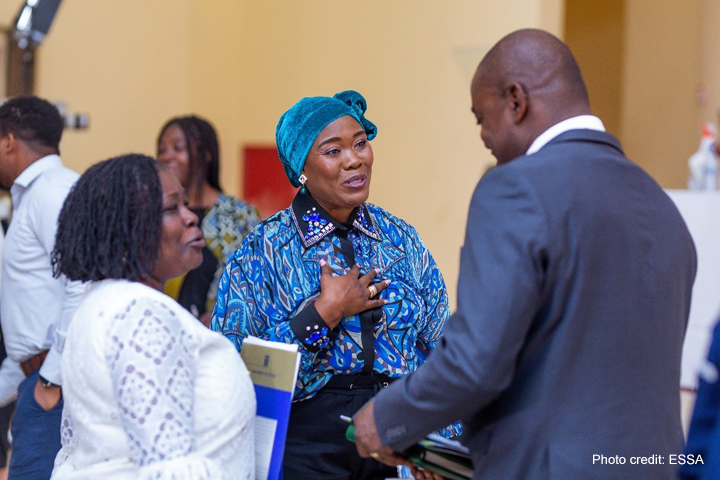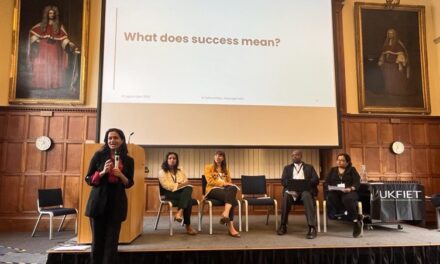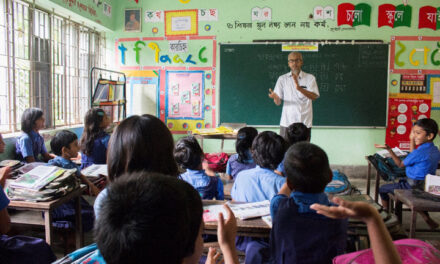This blog was written by Krista Cecille Samson, Research and Communications Assistant, Education Sub Saharan Africa (ESSA).
African researchers are often unable to provide data and evidence to inform global education debates and decision-making due to the immense financial challenges they face. Evidence shows that expertise from the African continent tends to be neglected and undervalued in favour of research and researchers elsewhere. Now, more so than ever, there is an urgent need for increased investment in African education research.
Last year, Education Sub Saharan Africa (ESSA), in collaboration with the REAL Centre at the University of Cambridge, organised a conference titled “Action on Funding for African-led Education Research”. The conference brought together approximately 300 education stakeholders from across Africa and beyond. The conference gave the stakeholders, including policymakers, researchers and universities the opportunity to engage in insightful discussions, which led to valuable ideas on improving access to funding for education researchers in Africa.
Funders must address the funding conditions that often work against African institutions, such as asking receiving institutions to contribute to the project budget as a basis for funding and requesting documentation and data which are difficult for these institutions to meet. Funders should appoint representatives to fund management teams in universities and colleges, or rather create teams that are responsible for ensuring the allocated funds reach the researchers in question.
Funders should increase funding to support early career researchers through mentorships and training, while also improving their engagements with African researchers to better understand their needs and challenges. There is a need for collaboration across the board, with funding as a tool to promote collaboration amongst Africa-based researchers.
African universities and colleges need autonomy in their operations, as well as the need to explore alternative research funding models and procurement procedures. Procurement exceptions/flexibility should be made available to African universities and colleges to enable the easy acquisition of research resources.
There is an urgent need to explore alternative research funding models. From Professor Touré Kane’s presentation, Senegal’s funding model emerged as a case study that could be explored in other parts of Africa. In Senegal, the government grants more funding to universities that commit to improving performance in specified areas.
Universities need to develop a database of funders, with a unit dedicated to reviewing this database regularly to share opportunities with researchers. They should also develop viable and sustainable fundraising strategies. It’s not enough for African education researchers to just have increased access to funding, they must also have supportive, conducive environments to work in to facilitate the production of good quality research, such as manageable workloads, access to good quality journals, and administrative support.
Clear research strategies need to be developed, while also providing young academics with the resources to work with their experienced peers to implement these strategies. Centres of excellence such as the African Research Universities Alliance (ARUA) should be strengthened and established across the universities and disciplines.
The urgent need for collaboration amongst African researchers cannot be overemphasised. Researchers should develop interdisciplinary research to strengthen collaboration and funding opportunities, while also expanding their reach and networks to enhance collaboration with other researchers and institutions across Africa and beyond. Researchers could also be more proactive in searching for funding opportunities by networking with representatives of foundations at conferences and local events, when possible.
It is equally important that researchers identify niche areas for themselves and develop strong messaging around that when approaching funders. Ultimately, trust needs to be established between funders and researchers. Researchers can strengthen this trust by becoming more accountable for the resources received and by delivering on what has been agreed on in research contracts.
We need to push for increased funding for education research in Africa and a collaborative effort to improve the situation. Funders, policymakers, researchers and universities each play a key role in improving access to funding for African education researchers. Each stakeholder must play their part to mitigate this challenge faced by African researchers.
***********
Access the Action on Funding for Africa-led Education Research conference material, including the Conference Report produced by ESSA and the REAL Centre, and the Speakers’ Presentations.
Visit the Africa Education Research Database (AERD), developed by ESSA and the REAL Centre.
If you have any questions or comments or are interested in investing in African education research and researchers, please email us using researchenquiries@essa-africa.org.




